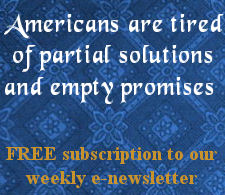 Written by Dennis Best.
Written by Dennis Best.
With the advent of the Industrial Revolution, a change in society’s perception of value began to take place. The almighty dollar became the de facto measure of worth, and factors that could not be quantified monetarily began to get phased out of the equation. Elements such as beauty, craftsmanship, uniqueness and heritage became subordinate to cost.
This is overwhelmingly evident in modern society. Most people define who they are by the work they do, or the position they hold. And they define their value by the amount of money they earn. Their estimation of self worth is directly proportionate to their net worth.
Is Technology Ruining Your Life? Take A Quick Quiz To Find Out By Clicking Here.
This has been especially detrimental to the family. Elderly parents are placed into State-funded homes when they become inconveniently costly for their children to support at home. And when they pass, their families often descend like vultures to get their share of  the inheritance. Note that the State will establish monetary values on all elements of the estate, for taxing purposes; and this reinforces the notion that everything can be reduced to its monetary value. And items of actual value, such as property, are taxed to the point where such things become too costly for the average citizen to own.
the inheritance. Note that the State will establish monetary values on all elements of the estate, for taxing purposes; and this reinforces the notion that everything can be reduced to its monetary value. And items of actual value, such as property, are taxed to the point where such things become too costly for the average citizen to own.
Children have become secondary to their parents’ income potential. Day care centers across the country are filled to capacity because, for so many families, both parents participate in the job market. Over 3,500 abortions are carried out each day, and the primary reason given is because the expense of raising the child is too inconvenient. Yes, even the value of our own children has been reduced to a dollar figure, and whether they live or die often hangs in the balance of a financial equation.
Likewise with business. There was a time when employers felt a level of responsibility for  the well-being of their employees. There was a sense of family in the workplace. But now we find many employers view their employees as little more than numbers on a financial report; and when the cost of maintaining the employee exceeds his or her allotted profit margin, they are promptly dismissed without hesitation or remorse.
the well-being of their employees. There was a sense of family in the workplace. But now we find many employers view their employees as little more than numbers on a financial report; and when the cost of maintaining the employee exceeds his or her allotted profit margin, they are promptly dismissed without hesitation or remorse.
Even our time has been given a dollar value. People work for an hourly wage, and are expected to be to work on time, and work a full shift. Time off of work is a reward. The sanctity of a Sabbath rest is completely displaced in our society, and retailers are expected to be open seven days a week. In medieval days, free time was abundant; but in the present day, despite all our technology and modern “conveniences,” free time has become a precious commodity.
At every level of society, a lust for money has become the prevailing reason for living. Our public schools and colleges have redefined their missions from preparing students for a full and meaningful life, to preparing them for getting a job. The frenzy to make more money, as quickly as possible, fuels the multi-billion dollar gambling industry. It drives the investment market, and encourages recklessness for immediate return over careful long-term planning. It inspires unscrupulous bankers and financiers on Wall Street to create the financial bubbles so detrimental to our society when they burst. It has bolstered corruption in government, where public servants conspire with corporations to stifle fair competition by means of unjust laws and overly burdensome regulations directed against the small businesses with whom they compete. It has legitimized greed, and turned it into a national pastime.
Since the fall of Adam, God has ordained that man must toil in order to survive. Work is healthy and righteous, but wealth-building is not the purpose of our existence. Our supreme goal is to seek redemption for ourselves and our fellow man, so that we might join Our Lord in heaven. To this end, a closer walk with God is required. And God warns us that the love of money is the root of all evil. God is love, compassion, beauty, admiration and grace worthy of worship – none of which can be reduced to a monetary value.
How do we reverse this trend?
1. Most solutions begin when we fully understand the problem. Here are several concrete steps we can take to help awaken an understanding of the problem to those around us.
a. The book, Return to Order, explains the crisis. We should ardently promote this work.
b. Teach our children that cost is only one of many measures of value, and that our faith and ideals are of much higher value than can be measured monetarily.
c. Remind our friends and acquaintances through the way we live and the things we say that money is not the most important thing in life, and that cost is not the only measure of value.
2. Demonstrate the virtues of supporting the local community by patronizing local businesses and family farms over the corporate giants:
a. Foster relationships with local merchants, and allow business to be personal and personable.
b. Buy from roadside stands – and enjoy the freshness and quality of local produce (even while traveling abroad).
c. Join associations and local coops to share, trade, develop, nurture and contribute locally.
3. Resist borrowing for things that are not necessary:
a. Recognize that advertisers are not promoting what is in your best interest, but are saying whatever they can to convince you to buy their product, as soon as possible.
b. Do not be in a rush to acquire.
c. Enjoy the journey.
d. Recognize that living within one’s means is not a bad thing, and demonstrate your trust in God’s promise to provide you with all that is necessary for your well being.
4. The cost of a vacation is not the measure of its worth. Consider simpler, less expensive excursions:
a. Seek out local hot spots, and spend more time enjoying the hospitality of activities and attractions in your own community.
b. Enjoy the sublime beauty of God in nature by participating in outdoor sports and  activities.
activities.
c. Spend vacation time visiting family and close friends.
d. Experience the joy and blessings that follow from participating in church and community projects.




